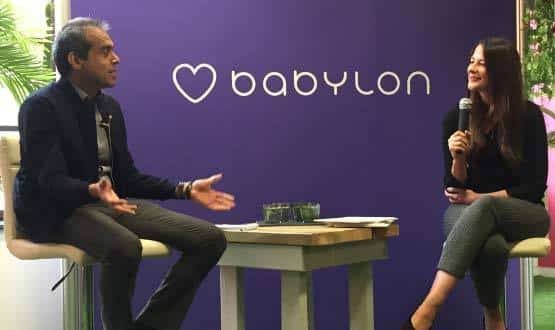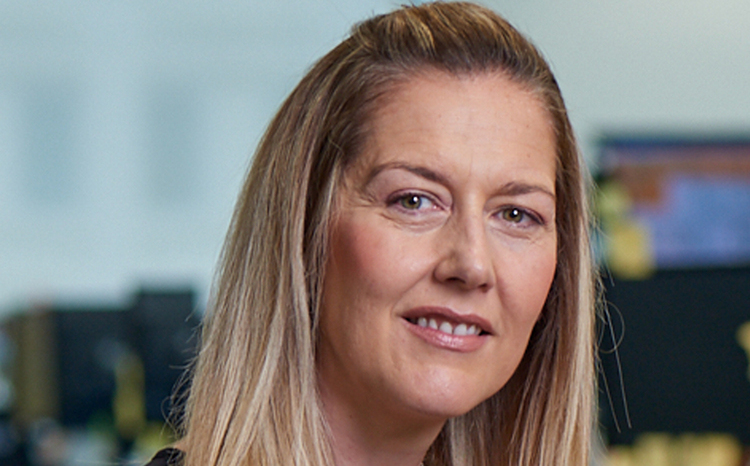Babylon Health launches new AI triage tool

Babylon Health says it has launched the first AI capable of triaging patients; although the company acknowledges that it doesn’t always agree with clinicians.
Babylon, founded by former Circle chief executive Ali Parsa, offers mobile-based health services that cover about 300,000 users.
The biggest of these is a subscription-based remote GP consultation service, through which patients can arrange a quick phone or video appointment with an on-call GP over their mobile.
The new “check” function is designed to triage patients automatically before they even talk to a GP. Algorithms draw on a customised clinical database to answer patients’ questions and advise them on what to do next.
For instance, if a patient that told babylon they were vomiting, with a high fever and a worsening severe headache, they might be advised to head straight to A&E.
Parsa compared the function to NHS111, but claimed babylon’s algorithms were more likely to make the correct triage decision, and do so quicker and cheaper.
In a demonstration at its London offices on Tuesday, the health tech company tested its new “check” function against a nurse and a doctor.
A body part was chosen at random and ULC primary care Professor Irwin Nazareth was brought in to be a fictional patient, telling both the babylon app and clinicians his symptoms and asking for triage advice.
In the first test, in which Nazareth had a fictional sore ear, Babylon advised he see a GP within a few hours, while the senior nurse, Cheryl Meineke, advised he see a pharmacist.
In the second, Dr Keziah Austin advised Nazareth see a GP in the next two weeks about his sore arm. Babylon again advised the Nazareth to see a GP within a few hours.
Speaking after the demonstration, Parsa said both the app and the clinician’s answers were sound triage advice.
“They are both safe…one might tell you to go the GP, one might tell you to go to the pharmacy but the truth of the matter is in medicine nothing is precise. It’s not mathematics, it’s a judgement call.”
However speaking later to Digital Health News, Parsa said that before the public demonstration the AI function was pitted against 20 nurses and 15 junior doctors in 102 clinical scenarios.
A panel of GPs found the doctors gave the correct triage advice 77.5% of the time, nurses 73.5% of the time, and the babylon AI 90.2% of the time.
“They [clinicians] have pattern recognition, they have confirmation bias, there is time pressure, new people waiting outside,” he said. “It [babylon] is superior.”
Austin, who said she had never heard of the babylon until a few weeks ago, was confident in the advice the AI had offered, but did not believe it was superior. “Nine times out of ten you give the same advice but it’s clear that the app errs slightly on the side of caution.”
She said she would not use it to replace or augment her own clinical judgement, which was based on wider range of non-verbal information and “instinct”.
Babylon is one of several health tech companies trying to disrupt health service largely from outside the NHS system by offering alternative models of care.
It is also not the only company focused on clinical AI, with Your.MD working on launching its own AI health app later this year and other AIs, such as IBM’s Watson, partnering with NHS trusts.
But Parsa said babylon’s AI functionality has pushed into new territory with its clinical functionality, likening it to a doctor and comparing its competitors to a receptionist handing out pamphlets.
How babylon, and other AI-based systems, will ultimately integrate into the existing NHS’s technology platforms and services, if at all, remains to be seen. For now, Babylon is not integrated into any patient records, although Parsa hopes this will happen in the future.
This means Babylon has not registered its app as a medical device, something that would need to change if the company made that next step.
Babylon’s main contact with the NHS to date has been through GPs, a handful of who offer the remote consult functionality to their patients for free.
Parsa said he would “love” to work with the NHS more closely but in the same breath complains that doing anything within that system “takes so long”.
The more immediate step for babylon will be to take the triage function and expand it to diagnosis; something the company hopes to do this year.
Dr Mobasher Butt, the global medical director of Babylon Health, will be speaking at the Health CIO and CCIO Network summer schools in Leeds next month. He is part of the 'digital disruptors' session at the event on 13-14 July; the full programme for which has just been published.




